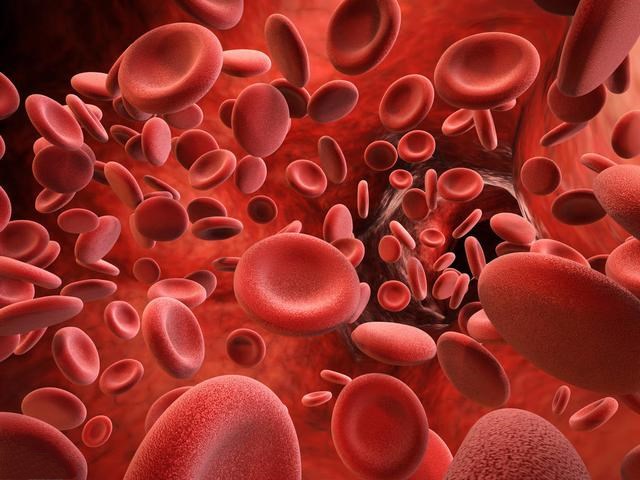NCCN Recommends Ropeginterferon Alfa-2b in Clinical Practice Guidelines Update
The National Comprehensive Cancer Network Clinical Practice Guidelines in Oncology has been revised to include ropeginterferon alfa-2b as a recommended treatment option for adult patients with polycythemia vera.

The National Comprehensive Cancer Network (NCCN) Clinical Practice Guidelines in Oncology has been revised to include ropeginterferon alfa-2b-njft (Besremi) as a recommended treatment option for adult patients with polycythemia vera, according to a news release from the developer of the agent, PharmaEssentia.
“Importantly, the NCCN Guidelines update includes mention of [ropeginterferon alfa-2b] in multiple settings, and in particular, as the only systemic option for low-risk patients with polycythemia vera, which signals a shift toward more proactive treatment earlier in the disease journey,” Ruben Mesa, MD, FACP, executive director of the UT Health San Antonio MD Anderson Cancer Center, stated in a news release. “Now, treating physicians can leverage these expert guidelines to gain greater familiarity with [ropeginterferon alfa-2b] in the real-world setting and understand its broad utility for patient care in a variety of treatment settings.”
On November 12, 2021, the FDA approved ropeginterferon alfa-2b as a treatment for patients with polycythemia vera based on findings from the PEGINVERA (NCT01193699), PROUD-PV, and CONTINUATION-PV trials.
In PEGINVERA, 61% of patients achieved a complete hematological response after 7.5 years of treatment with ropeginterferon alfa-2b-njft, which was defined as hematocrit of less than 45% without phlebotomy for at least 2 months since last phlebotomy, platelet counts of 400 x 109/L or less, leukocytes of 10 x 109/L or less, and normal spleen size (longitudinal diameter ≤12 cm for females and ≤ 13 cm for males).
Additionally, most patients (80%) developed a hematological response with the agent according to objective laboratory parameters predominantly, with normal spleen size and thrombosis.
In PEGINVERA, the most common adverse effects occurring in at least 40% of patients were influenza-like illness (59%), arthralgia (47%), fatigue (47%), pruritis (45%), nasopharyngitis (43%), and musculoskeletal pain (41%). Serious adverse reactions occurring in at least 4% of patients were urinary tract infection (8%), transient ischemic attack (6%), and depression (4%).
The PROUD-PV and CONTINUATION-PV trials enrolled patients who were at least 18 years of age with a diagnosis of early-stage polycythemia vera, according to the World Health Organization 2008 criteria.
In PROUD-PV, patients were randomized 1:1 to a 100-μg biweekly starting dose of subcutaneous ropeginterferon alfa-2b or a 500-mg daily starting dose of oral hydroxyurea. At 1 year, patients were allowed to enroll to the extension portion of the study, CONTINUATION-PV.
The primary end point of PROUD-PV was noninferiority of ropeginterferon alfa-2b vs hydroxyurea with regard to complete hematological response with normal spleen size at 1 year. The coprimary end points of CONTINUATION-PV were complete hematological response with normalization of spleen size and improved disease burden based on splenomegaly, microvascular disturbances, pruritus, and headache.
The median follow-up was 182.1 weeks in the ropeginterferon alfa-2b arm and 164.5 weeks in the hydroxyurea arm.
In PROUD-PV, 21% (n = 26) of patients in the ropeginterferon alfa-2b arm (n = 122) and 28% (n = 34) of those in the hydroxyurea arm (n = 123) met the composite primary end point of complete hematological response. Moreover, at 36 months, improved disease burden was achieved in 53% (n = 50) of patients who received ropeginterferon alfa-2b vs 38% (n = 28) of those who received hydroxyurea (n = 74; P = .044).
Further results from PROUD-PV showed that the 1-year complete hematological response rate without the spleen criteria was 43% (n = 53/123) in the ropeginterferon alfa-2b arm vs 46% (n = 57/125) in the hydroxyurea arm (P = .63). At 36 months in CONTINUATION-PV, these rates were 71% (n = 67/95) vs 51% (n = 38/74), respectively (P = .012).
“Our goal with [ropeginterferon alfa-2b] has been to offer a compelling therapeutic alternative to conventional treatment options that can enable physicians to gain durable control over the disease beyond the symptoms and help more patients reach their long-term health goals,” Raymond Urbanski, MD, PhD, US Head of Clinical Development and Medical Affairs, said in the news release. “The NCCN Guidelines update just 3 months following our approval illustrates the community’s recognition of the strong potential of [ropeginterferon alfa-2b] in polycythemia care.”
Ropeginterferon alfa-2b is approved with a boxed warning for risk of aggravation of neuropsychiatric, autoimmune, ischemic, and infectious disorders.
References
1.NCCN clinical practice guidelines in oncology update recommends besremi (ropeginterferon alfa-2b-njft) for the treatment of polycythemia vera. News release. PharmaEssentia. March 2, 2022. Accessed March 2, 2022. https://bit.ly/3HwMNr7
2.Besremi. Prescribing information. PharmaEssentia; 2021. Accessed March 2, 2022. https://bit.ly/3IFyj9J
3.Gisslinger H, Klade C, Georgiev P, et al. Ropeginterferon alfa-2b versus standard therapy for polycythaemia vera (PROUD-PV and CONTINUATION-PV): a randomised, non-inferiority, phase 3 trial and its extension study. Lancet Haematol. 2020;7(3):e196-e208. doi:10.1016/S2352-3026(19)30236-4
https://www.onclive.com/view/nccn-recommends-ropeginterferon-alfa-2b-in-clinical-practice-guidelines-update
Disclaimer:《NCCN Recommends Ropeginterferon Alfa-2b in Clinical Practice Guidelines Update》Edited and sorted by Seagull Pharmacy's editors. Please contact us in time if there is any infringement. In addition, the suggestions for drug usage, dosage and disease mentioned in the article are only for medical staff's reference, and can not be used as any basis for medication!